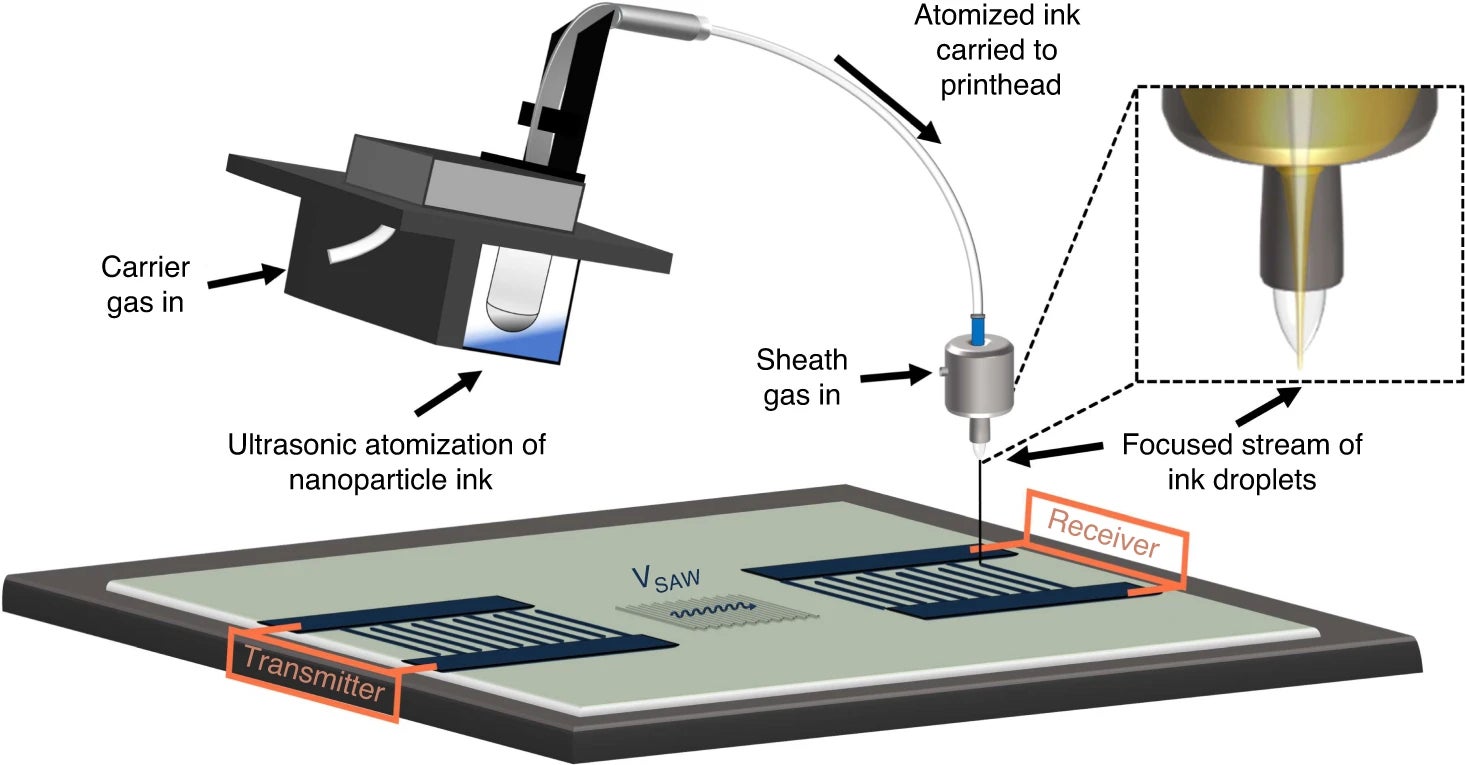
Nicholas McKibben’s award winning work in aerosol jet printing of surface acoustic wave thermometers – a project at the intersection of advanced manufacturing and nuclear energy -earned national recognition for its potential impact on high-temperature sensing in nuclear environments.
McKibben, a recent doctoral graduate from the Micron School of Materials Science and Engineering received the U.S. Department of Energy’s Award of Excellence for the Innovations in Nuclear Energy Research and Development Student Competition.
The award recognizes McKibben’s publication, “Aerosol-Jet Printed Surface Acoustic Wave Thermometer” (Microsystems and Nanoengineering, 2023), which was co-authored with researchers from Boise State and Idaho National Laboratory. The work leverages additive manufacturing to produce sensors capable of surviving and operating in extreme environments, a key requirement for next-generation nuclear reactors and space exploration technologies.
In February 2025, McKibben was invited to speak at the American Nuclear Society’s Innovations in Nuclear Energy Student Competition Webinar Series, to provide insights and updates into his research and advanced sensor development for nuclear applications.
The DOE Award of Excellence underscores McKibben’s broader impact as an innovative researcher, dedicated mentor and collaborative force in the lab. With a growing portfolio of high-impact publications and a talent for bridging disciplines, his work continues to help define the next generation of advanced manufacturing and nuclear sensing technologies.

“Dr. McKibben has been instrumental in developing novel materials for additive manufacturing of sensors for extreme environments,” said David Estrada, a professor in the Micron School of Materials Science and Engineering and McKibben’s dissertation advisor. “His background in chemistry brought unique perspectives to our team to help achieve project milestones for NASA and the Department of Energy. His results on sensor development for extreme environments formed the basis for two major research awards from these agencies that have continued to support the next generation of researchers working in this field.”
McKibben’s other work on the development of magnetic nanoparticle inks was featured on the cover of the American Chemical Society’s Applied Electronic Materials, and highlights novel materials and methods for fabrication of sensors for extreme environments and additive patterning of substrates for two-dimensional materials growth. McKibben currently serves as a Research Scholar at Boise State’s Smart Materials and Systems Laboratory, where his work continues to push the boundaries of additive manufacturing and sensor technology.
About the NEUP INSC Program
The DOE’s Nuclear Energy University Program (NEUP) supports university-led research that aligns with the department’s nuclear energy priorities. The Innovations in Nuclear Technology Research and Development Awards recognize student researchers for exemplary work contributing to the development of nuclear technologies.